
Business
17:20, 07-Nov-2017
S. Korean businesses look to recover from Chinese THAAD boycott
by Nicholas Moore
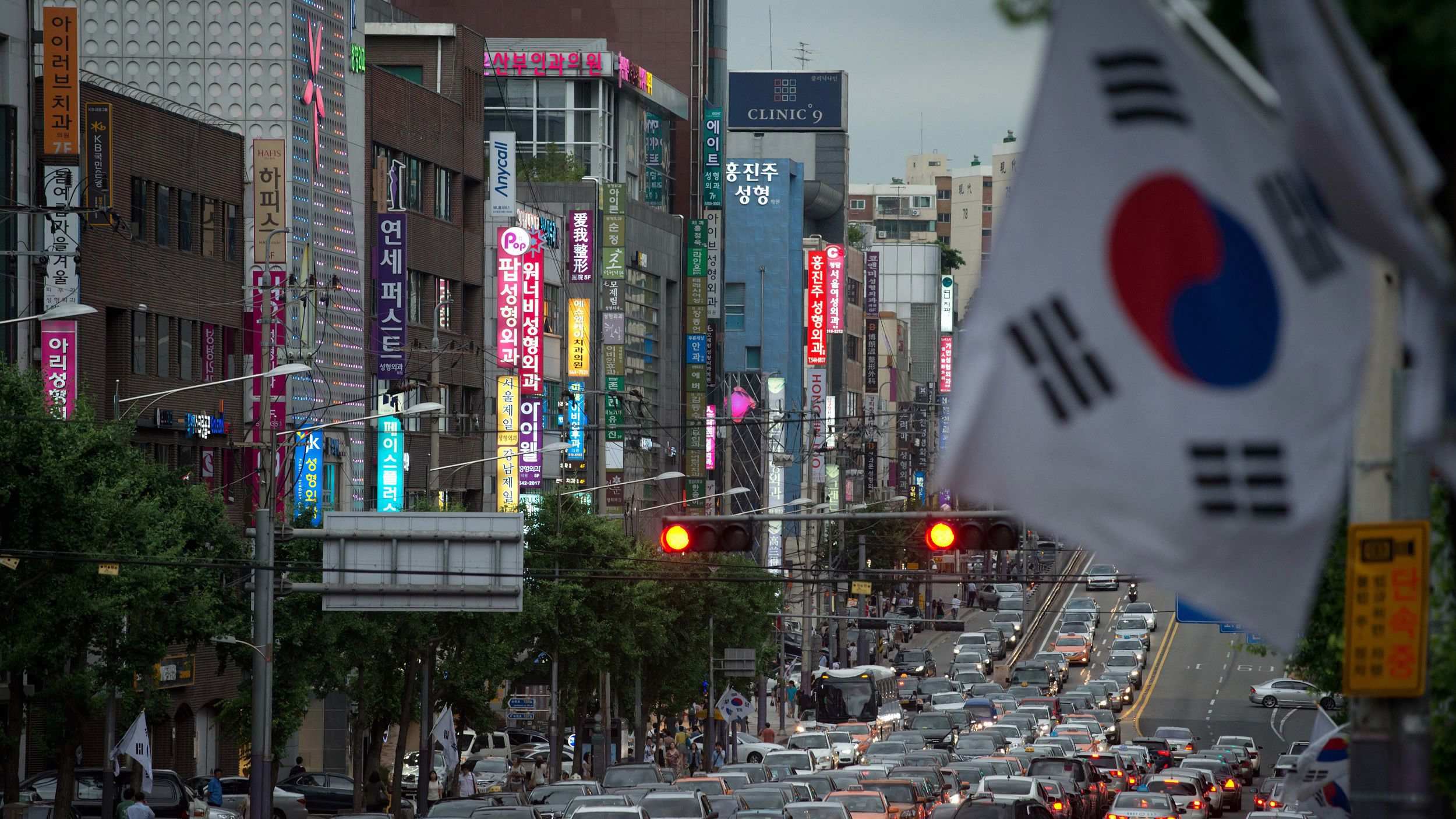
South Korea’s decision to deploy the controversial THAAD missile defense system – despite China’s strong objections – has seen South Korean companies suffer plummeting sales and damaged reputations in one of their most important markets.
After Beijing and Seoul agreed to normalize ties, South Korean businesses are already showing signs of recovery, having learned a few lessons along the way.
According to Bank of Korea estimates, Seoul’s decision to deploy THAAD and the resulting Chinese boycott have cut 0.4 percentage points from GDP growth in 2017. Without THAAD, this year would have seen South Korea’s fastest economic growth since 2011.
While the THAAD controversy initially had a dramatic effect, the threat of losing out on the lucrative Chinese market forced many of the companies to reflect on their own core business failings, forcing reshuffles, restructuring and moves to other markets.
Lotte: Was THAAD a wake-up call?
The company at the center of the controversy was conglomerate Lotte, South Korea’s fifth largest chaebol - the Korean name for a conglomerate owned by a wealthy family - after agreeing to sell the golf course which authorities had earmarked as the site for THAAD’s deployment. Following two decades of investment in China, Lotte was one of the most exposed companies during the boycott.
87 of 99 Lotte hypermarkets in China have closed since February, with the group revealing in October that it had suffered estimated losses of one trillion won (885 million US dollars) in China.
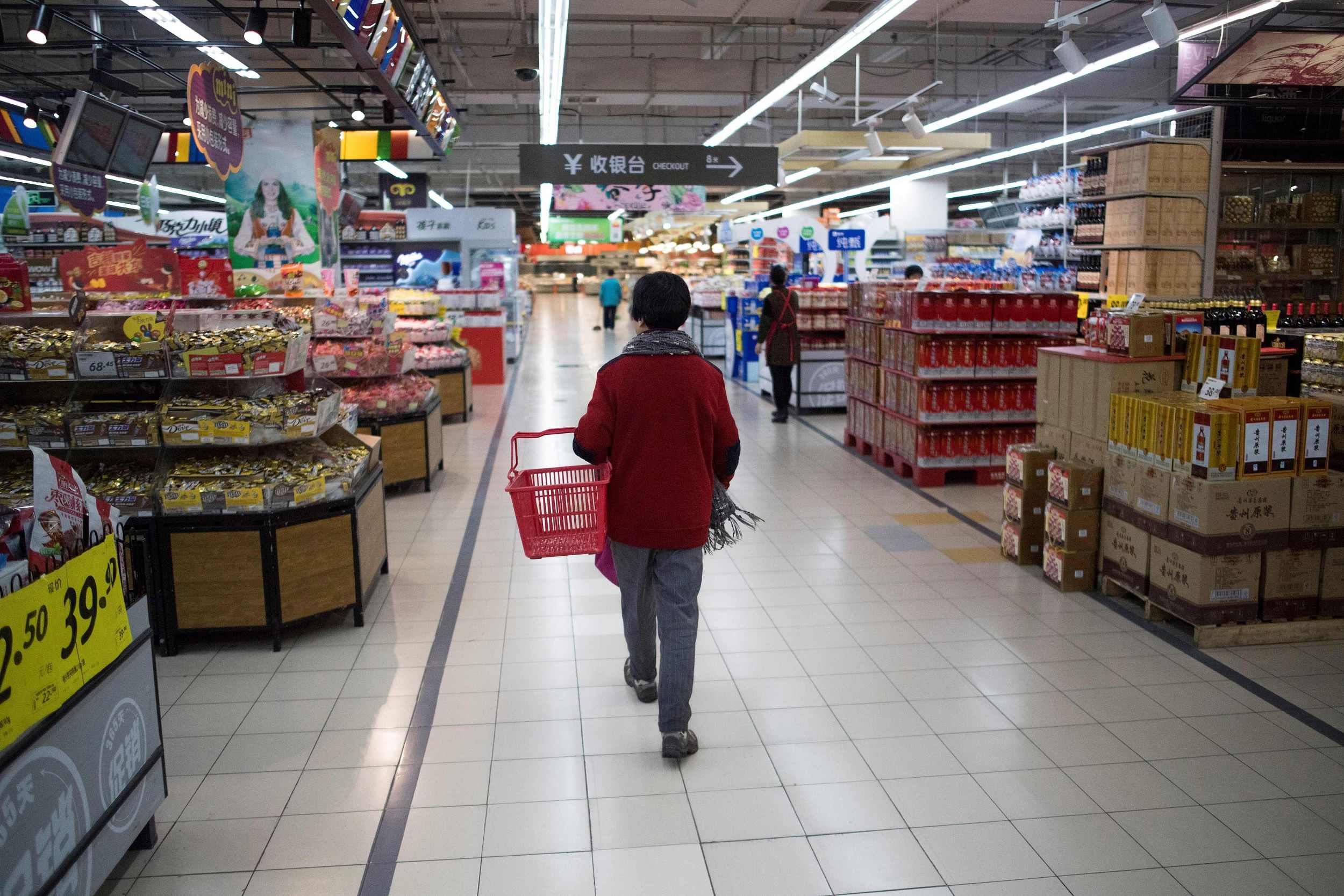
An almost empty Lotte Mart in Shanghai on March 13, 2017. /VCG Photo
An almost empty Lotte Mart in Shanghai on March 13, 2017. /VCG Photo
A 1.45 million square meter construction project in Shenyang was halted, while Lotte Duty Free saw a plunge in sales after Chinese tourists visiting South Korea dropped dramatically.
The fallout from the THAAD controversy dealt a heavy financial blow to Lotte, but it also delivered a much-needed wake-up call to corporate complacency and corruption. April saw chairman Shin Dong-bin arrested after involvement in the Park Geun-hye corruption scandal – he is currently facing charges that could put him in prison for 10 years.
The THAAD controversy underscored how vulnerable Lotte was to a sudden drop in Chinese consumers – and, despite being the company’s biggest market, heavy investment in China had not exactly paid off. Despite having a presence in the country for over 20 years, the three years from 2011-2014 saw Lotte make losses of one trillion won in China (853 million US dollars at that time), because of underperforming stores and failing to keep pace with rapid changes in the e-commerce sector.
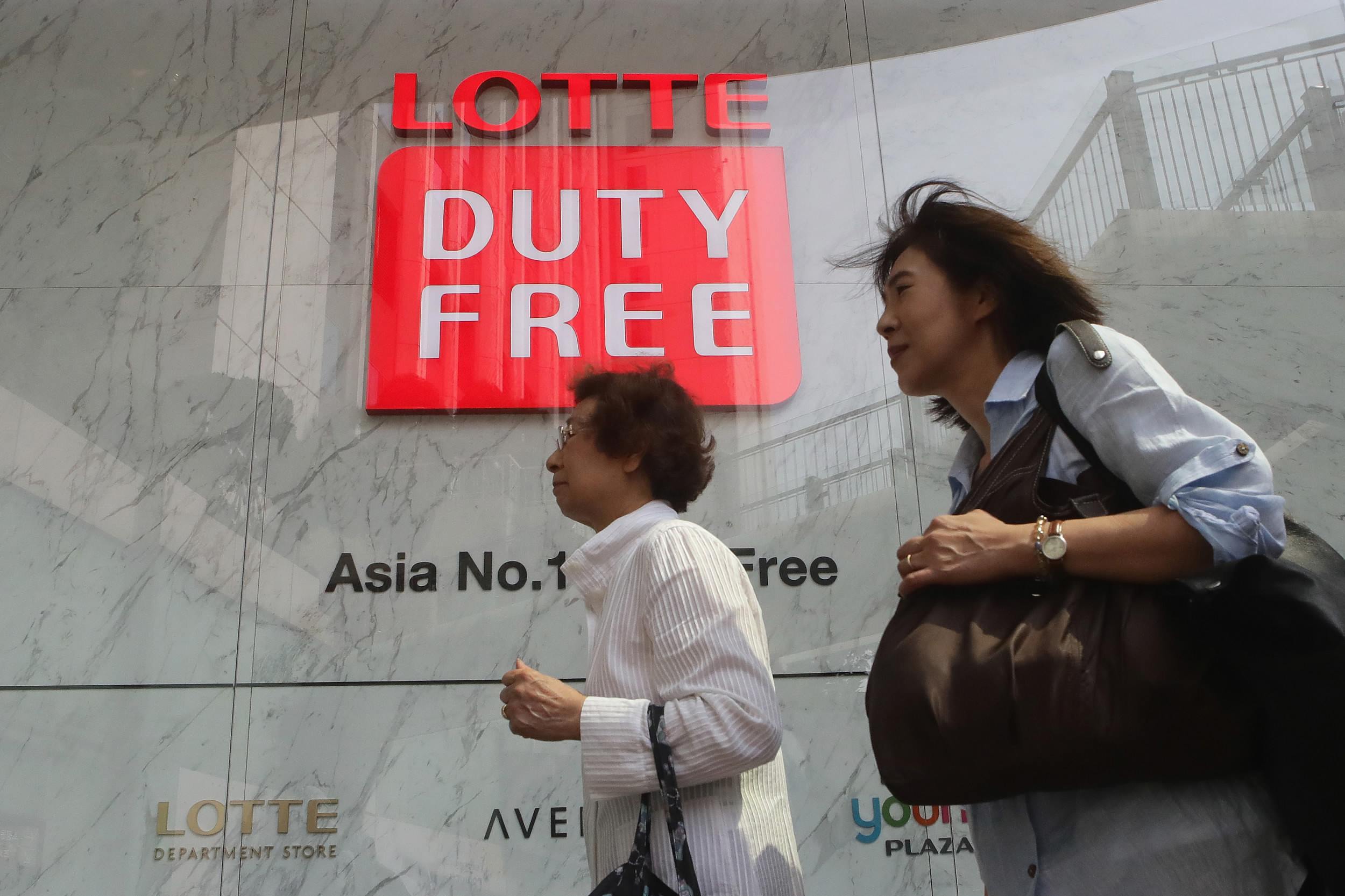
Lotte Duty Free had poured billions of won into catering for Chinese tourists prior to the THAAD deployment. /VCG Photo
Lotte Duty Free had poured billions of won into catering for Chinese tourists prior to the THAAD deployment. /VCG Photo
In October, Lotte announced that it would be selling off its remaining superstores in China by the end of the year. The decision to pull all of its supermarkets from China comes after THAAD forced Lotte to look towards Vietnam and Indonesia, where it already has 13 and 45 stores respectively, along with trillions of won invested in construction projects.
A major restructuring process got underway in October with the establishment of a new holding firm called Lotte Corp. Its debut at the end of last month saw shares soar 50 percent above the issue price, with investors buoyed by the likelihood of further reforms within a company blighted by complex ownership problems and an ongoing family feud.
Hyundai: Overcoming a 65 percent sales slump
In 2016, Beijing Hyundai Motor – a joint venture between Hyundai Group and China’s BAIC Motor – was the third largest car manufacturer in China, with sales of just under 1.8 million vehicles according to Nikkei Asian Review.
However, 2017 saw sales in China slump 65 percent in the second quarter, with the company forced to cut its targets for the year by almost 25 percent. Factory closures in the country because of a failure to pay suppliers on time saw the Financial Times describe the company as being in a “precarious financial situation amid flatlining sales.”
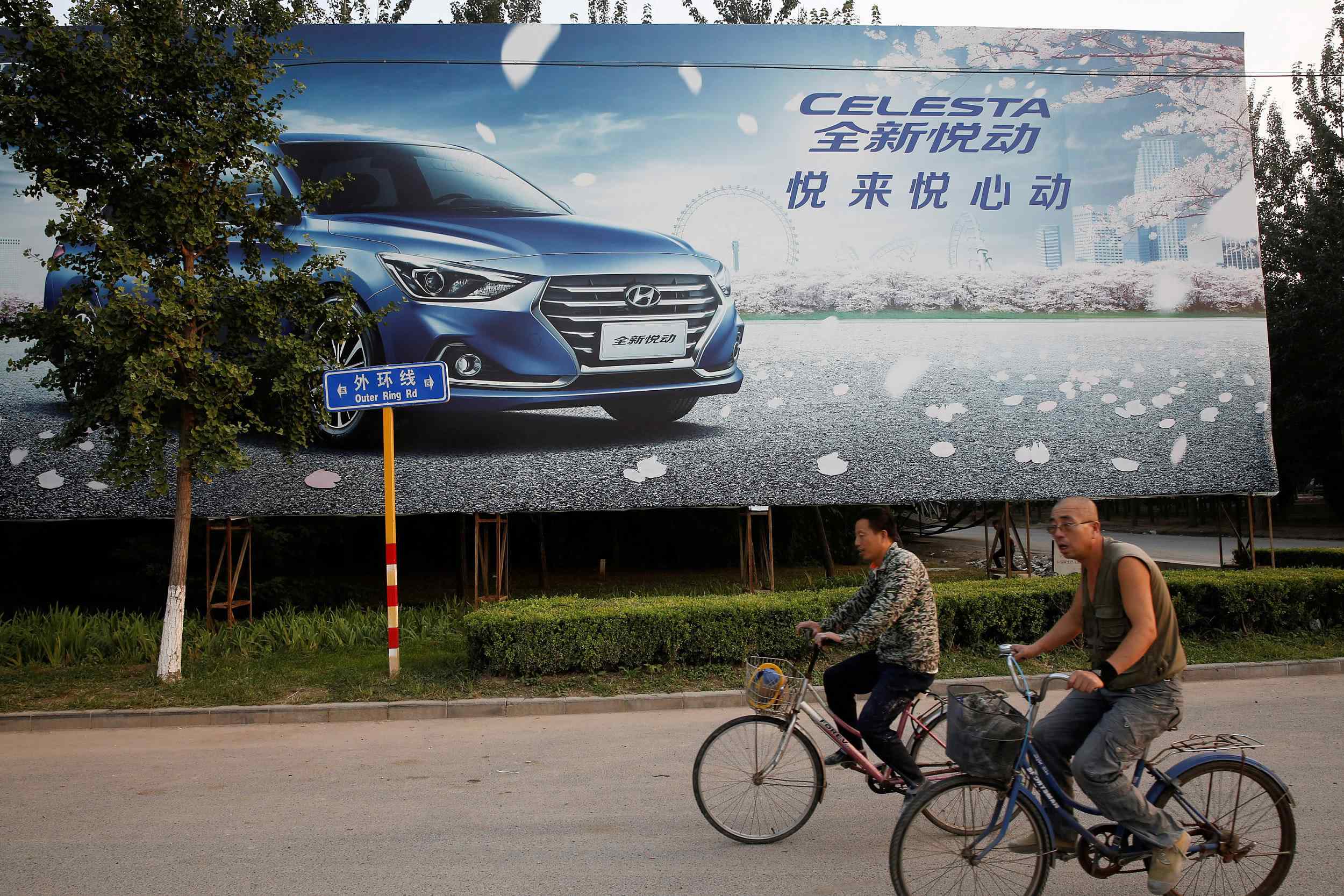
Hyundai was the third biggest car brand in China in 2016, before sales fell dramatically this year. /VCG Photo
Hyundai was the third biggest car brand in China in 2016, before sales fell dramatically this year. /VCG Photo
For the wider car industry, South Korean manufacturers saw their market share in China fall to 3.83 percent from 7.35 percent in the first half of the year, according to the China Association of Automobile Manufacturers.
Hyundai’s poor 2017 performance can be put down to both Chinese consumers boycotting South Korean brands and a failure to adapt to rapid changes in the market – Hyundai’s failure to release an SUV vehicle in its most recent line-up was widely seen as a big error.
However, China remains hugely important for Hyundai. In September it opened its first overseas big data center in the upcoming tech hub of Gui'an New Area, in southwest Guizhou Province, in a sign that the South Korean firm sees China as the best location for developing its Internet of Things-based blueprint for the future.
Tourism plunge means wider knock-on effect
In 2016, 46.8 percent of around 17 million tourists visiting South Korea were from China, making it the second most popular overseas destination behind Thailand for Chinese travelers.
But what a difference a year makes. Xinhua reported in September that the number of Chinese visitors entering South Korea in July was down 69.3 percent year-on-year, after tour groups, airlines and individual travelers all gave the country the cold shoulder following the deployment of THAAD, causing a potential loss of 5.9 billion US dollars, based on figures from the Korean Tourism Agency.
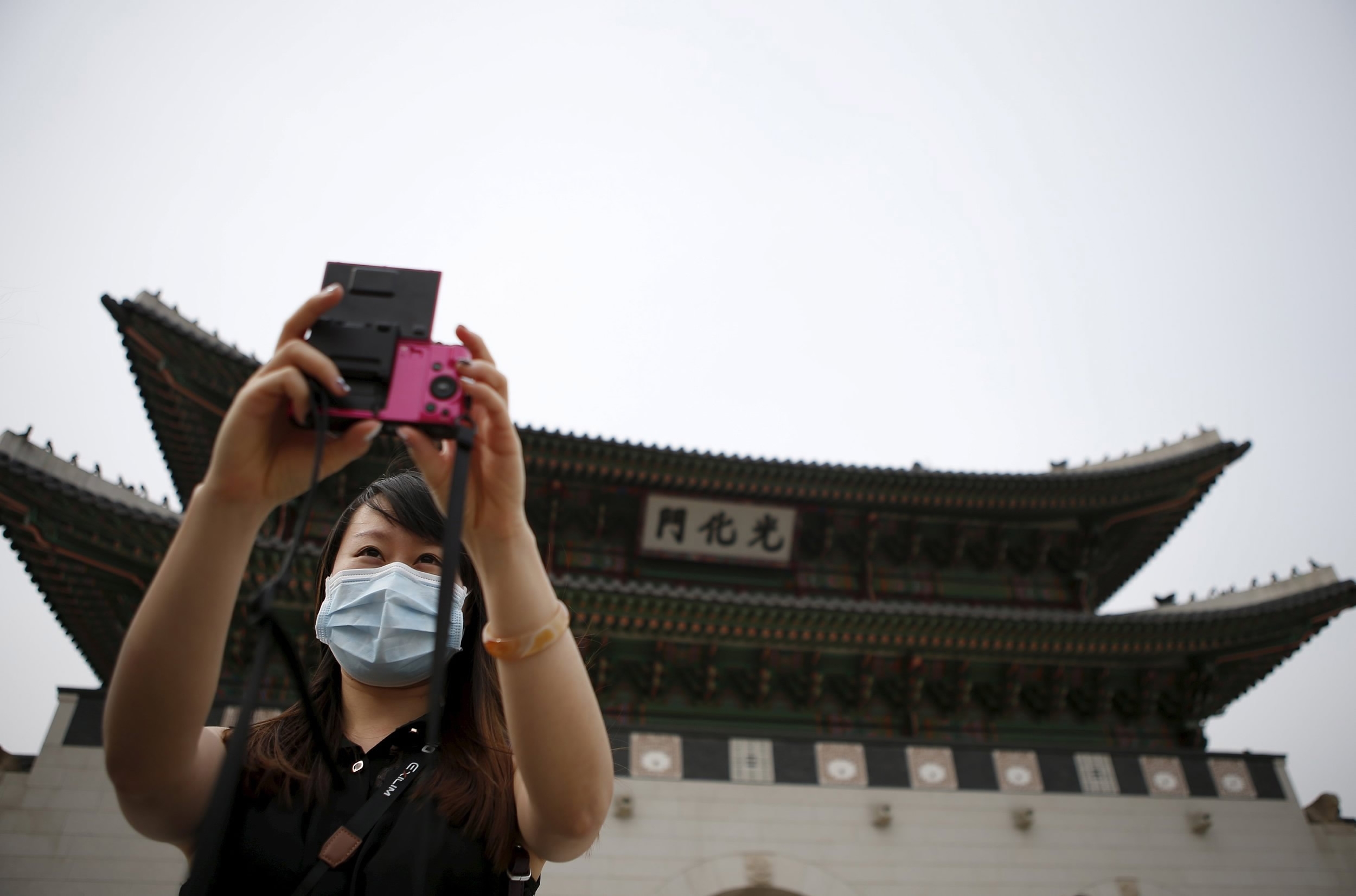
A Chinese tourist takes a selfie in front of the main entrance of the Gyeongbok Palace in central Seoul, South Korea, June 4, 2015. /VCG Photo
A Chinese tourist takes a selfie in front of the main entrance of the Gyeongbok Palace in central Seoul, South Korea, June 4, 2015. /VCG Photo
The sharp drop has had a knock-on effect on tourism infrastructure especially catering for Chinese travelers. On Jeju island – where Chinese tourists made up 95 percent of total visitors in 2015 – the number of Chinese-speaking tour guides has fallen from around 400 to less than 50 since the THAAD boycott.
90 percent of tourism agencies specialized in catering for Chinese travelers have closed according to Reuters, and while China’s Spring Airlines has announced that flights to Jeju will soon be resumed, South Korea’s tourism industry will need time to build up the resources capable of catering to the numbers of Chinese tourists seen in previous years.

SITEMAP
Copyright © 2018 CGTN. Beijing ICP prepared NO.16065310-3
Copyright © 2018 CGTN. Beijing ICP prepared NO.16065310-3